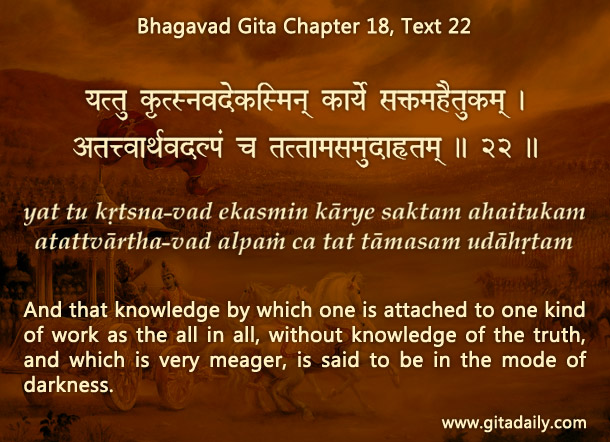How our experience may increase our ignorance – Suppose someone has hurt us badly, several times. We may start seeing them as a villain, a person whose existence is a curse to the world..
Over time, our aversion may extend beyond them to those connected with them — their family, their ethnic group, their religion, their nationality and so forth. Such extension feels justified in our eyes especially if anyone connected with them appreciates them: “How can you say anything good about such a terrible person? It means you too must be a terrible person.”
If we spread such generalizations, we contribute, knowingly or unknowingly, to the negative stereotyping of that group of people. And stereotypes sometimes take a life of their own, growing beyond just unflattering to demeaning or even dehumanizing. Consequently, blameless people end up getting attacked for something done long ago and far away, by someone remotely connected with them.
When we stereotype someone, we often overlook people’s moral complexity; the same person who hurt us might have helped someone else. That’s why they may speak well about that person — it’s not because they all are complicit in a sinister cover-up.
To avoid stereotyping, do we have to deny our experiences of those who hurt us? Not at all; it just means that we don’t reduce the entirety of any person (and certainly not the entirety of their group) to our experience of that person. Such reductionism characterizes knowledge in the mode of ignorance (Bhagavad-gita 18.22).
Having thus avoided prejudice, we can maturely do whatever it takes to protect ourselves from being hurt.
One-sentence summary:
Don’t extrapolate from our negative experiences with someone to their entire personality or their entire group, lest our very experience become the basis of our ignorance.
Think it over:
- How may our experience of certain people increase our ignorance of those people?
- Have you ever stereotyped people? How can you minimize it?
- Has anyone hurt you? How can you deal with it without becoming prejudiced?
***
18.22: And that knowledge by which one is attached to one kind of work as the all in all, without knowledge of the truth, and which is very meager, is said to be in the mode of darkness.
To know more about this verse, please click on the image


Nice, please keep it up